Best AI tools for< Regression >
20 - AI tool Sites

Reflect
Reflect is an AI-powered test automation tool that revolutionizes the way end-to-end tests are created, executed, and maintained. By leveraging Generative AI, Reflect eliminates the need for manual coding and provides a seamless testing experience. The tool offers features such as no-code test automation, visual testing, API testing, cross-browser testing, and more. Reflect aims to help companies increase software quality by accelerating testing processes and ensuring test adaptability over time.
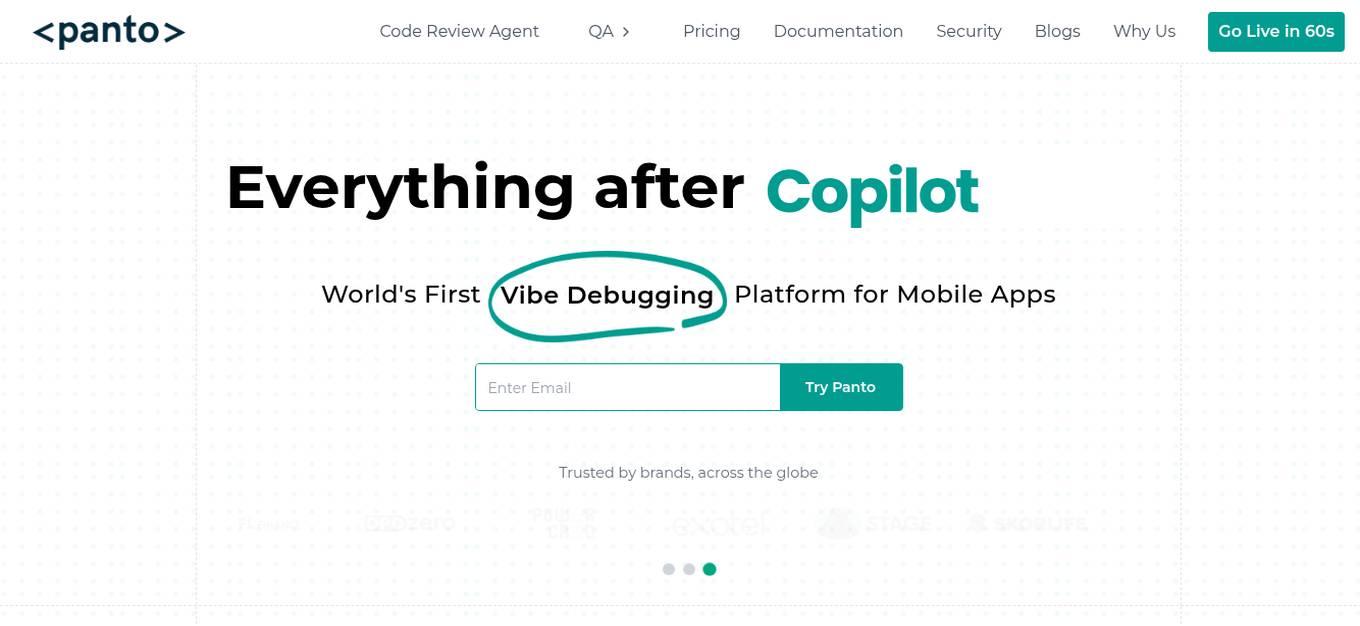
Panto AI
Panto AI is an AI automation testing platform that offers a comprehensive solution for mobile app testing, combining dynamic code reviews, code security checks, and QA automation. It allows users to create, execute, and run mobile test cases in natural language, ensuring reliable and efficient testing processes. With features like self-healing automation, real device testing, and deep failure visibility, Panto AI aims to streamline the QA process and enhance app quality. The platform is designed to be platform-agnostic and supports various integrations, making it suitable for diverse mobile app environments.

Scienaptic Systems
Scienaptic Systems is an AI-powered Credit Decisioning Platform that revolutionizes the lending industry by automating credit underwriting processes, leveraging alternate data points, and offering self-learning models for instant credit decisions. The platform helps lenders identify creditworthy borrowers, streamline customer experience, and ensure fair lending practices through explainable AI models. Scienaptic's suite of AI-enabled technologies enables lenders to say 'Yes' to more borrowers at lower risk, providing a 360-degree risk assessment before approving applications. The platform integrates seamlessly with existing lending ecosystems, ensuring disruption-free deployment and better risk predictions through a single API call.

Numerai
Numerai is a data science tournament platform where users can compete to build models that predict the stock market. The platform provides users with clean and regularized hedge fund quality data, and users can build models using Python or R scripts. Numerai also has a cryptocurrency, NMR, which users can stake on their models to earn rewards.

Heal.dev
Heal.dev is an AI-powered platform that offers an easy way to write stable end-to-end tests by automating regression testing, end-to-end tests, and production smoke tests in minutes. It provides tools for defining stable tests in plain English, automating complex checks with AI-powered assertions, composing tests with blocks, extending functionality with JavaScript code, and detecting bugs smartly. Heal.dev aims to speed up development cycles, eliminate flaky tests, and allow teams to focus on shipping great software.
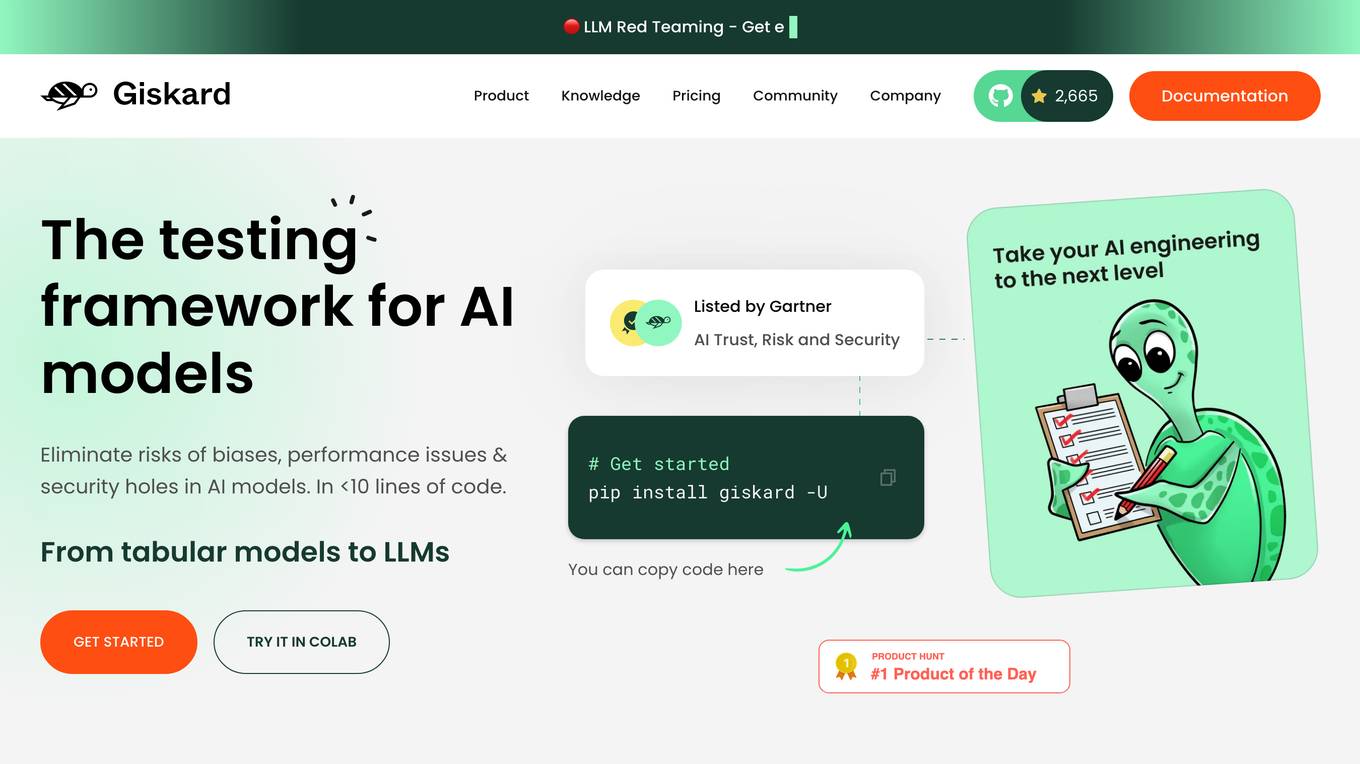
Giskard
Giskard is an AI Red Teaming & LLM Security Platform designed to continuously secure LLM agents by preventing hallucinations and security issues in production. It offers automated testing to catch vulnerabilities before they happen, trusted by enterprise AI leaders to ensure data and reputation protection. The platform provides comprehensive protection against various security attacks and vulnerabilities, offering end-to-end encryption, data residency & isolation, and compliance with GDPR, SOC 2 Type II, and HIPAA. Giskard helps in uncovering AI vulnerabilities, stopping business failures at the source, unifying testing across teams, and saving time with continuous testing to prevent regressions.
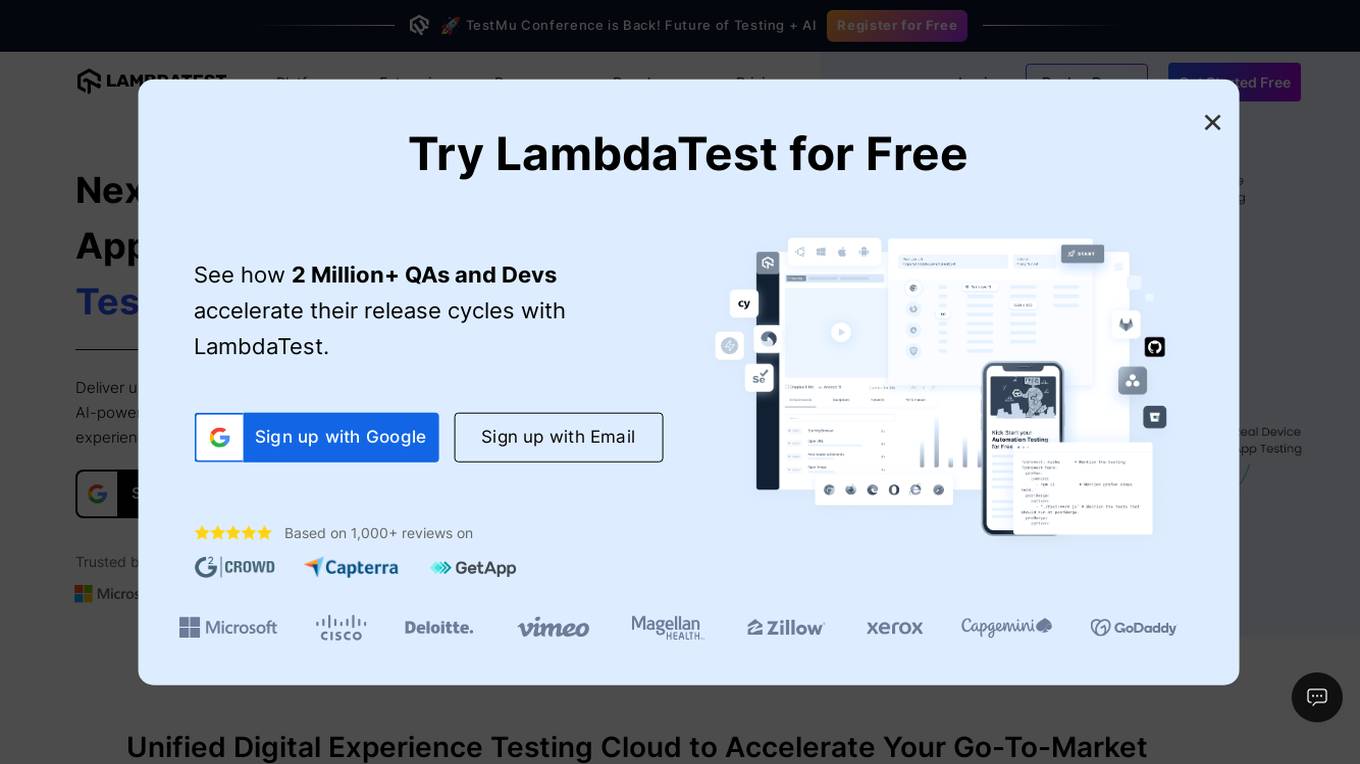
LambdaTest
LambdaTest is a next-generation mobile apps and cross-browser testing cloud platform that offers a wide range of testing services. It allows users to perform manual live-interactive cross-browser testing, run Selenium, Cypress, Playwright scripts on cloud-based infrastructure, and execute AI-powered automation testing. The platform also provides accessibility testing, real devices cloud, visual regression cloud, and AI-powered test analytics. LambdaTest is trusted by over 2 million users globally and offers a unified digital experience testing cloud to accelerate go-to-market strategies.
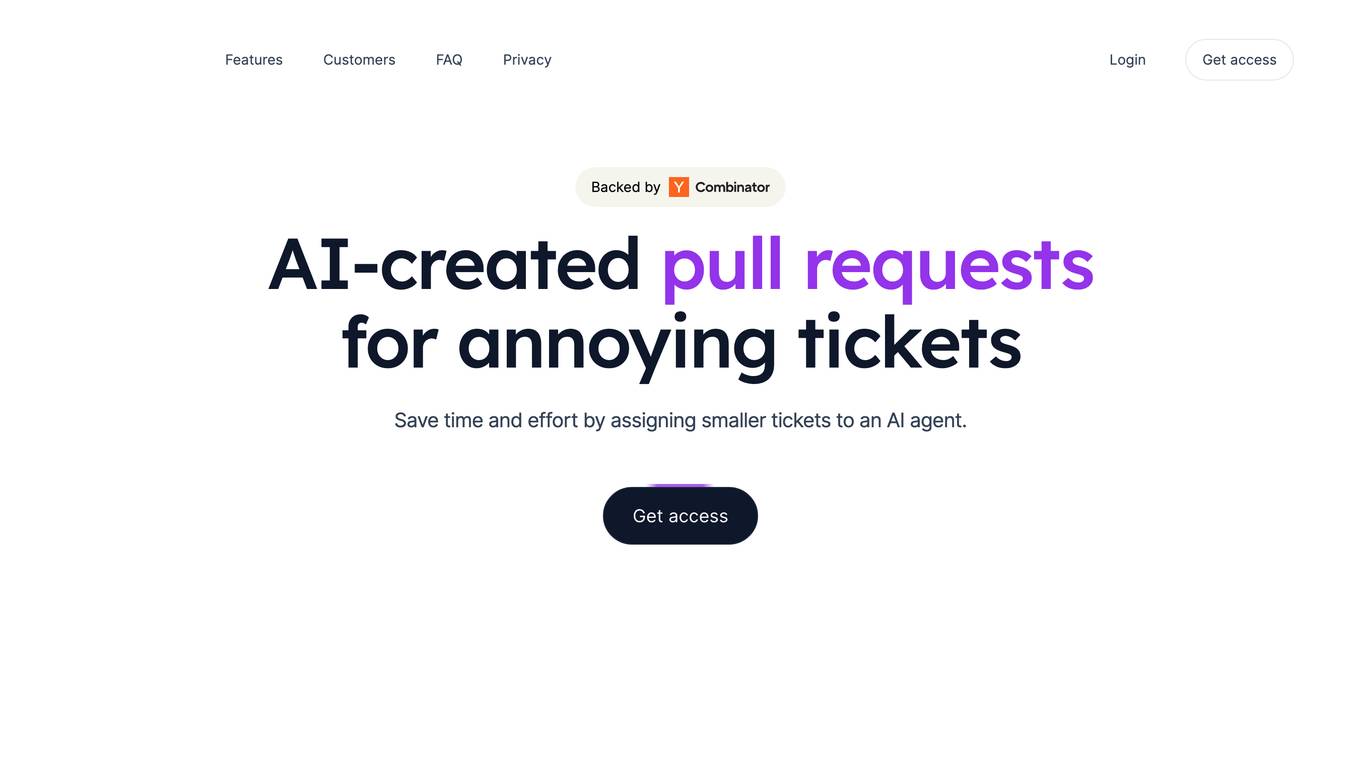
Tusk
Tusk is an AI testing platform that helps users with API, unit, and integration testing. It leverages AI-enabled tests to prevent regressions, cover edge cases, and generate verified test cases for faster and safer shipping. Tusk offers features like shift-left testing, autonomous testing, self-healing tests, and code coverage enforcement. It is trusted by engineering leaders at fast-growing companies and aims to halve engineering release cycles by catching bugs early. The platform is designed to provide high-quality tests to reach coverage goals and increase code quality.
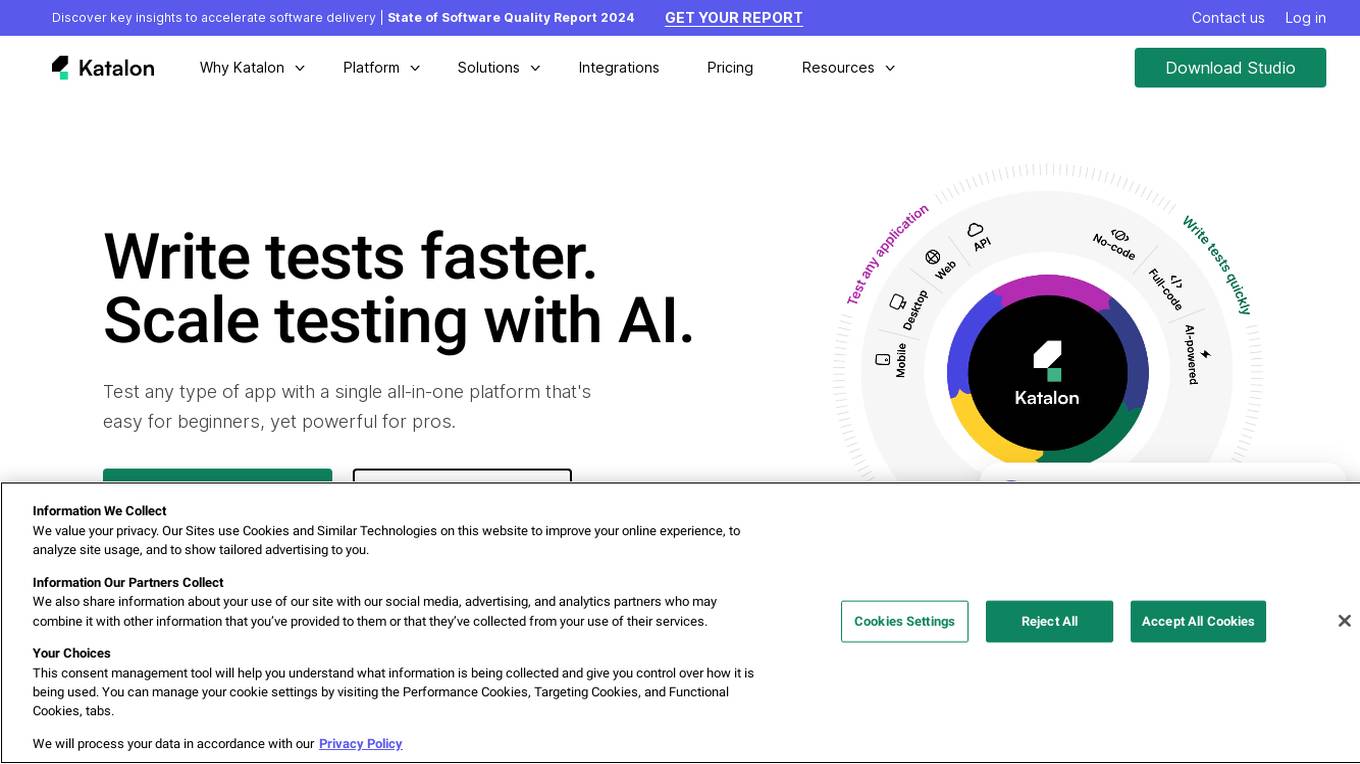
Katalon
Katalon is a modern, comprehensive quality management platform that helps teams of any size deliver the highest quality digital experiences. It offers a range of features including test authoring, test management, test execution, reporting & analytics, and AI-powered testing. Katalon is suitable for testers of all backgrounds, providing a single platform for testing web, mobile, API, desktop, and packaged apps. With AI capabilities, Katalon simplifies test automation, streamlines testing operations, and scales testing programs for enterprise teams.
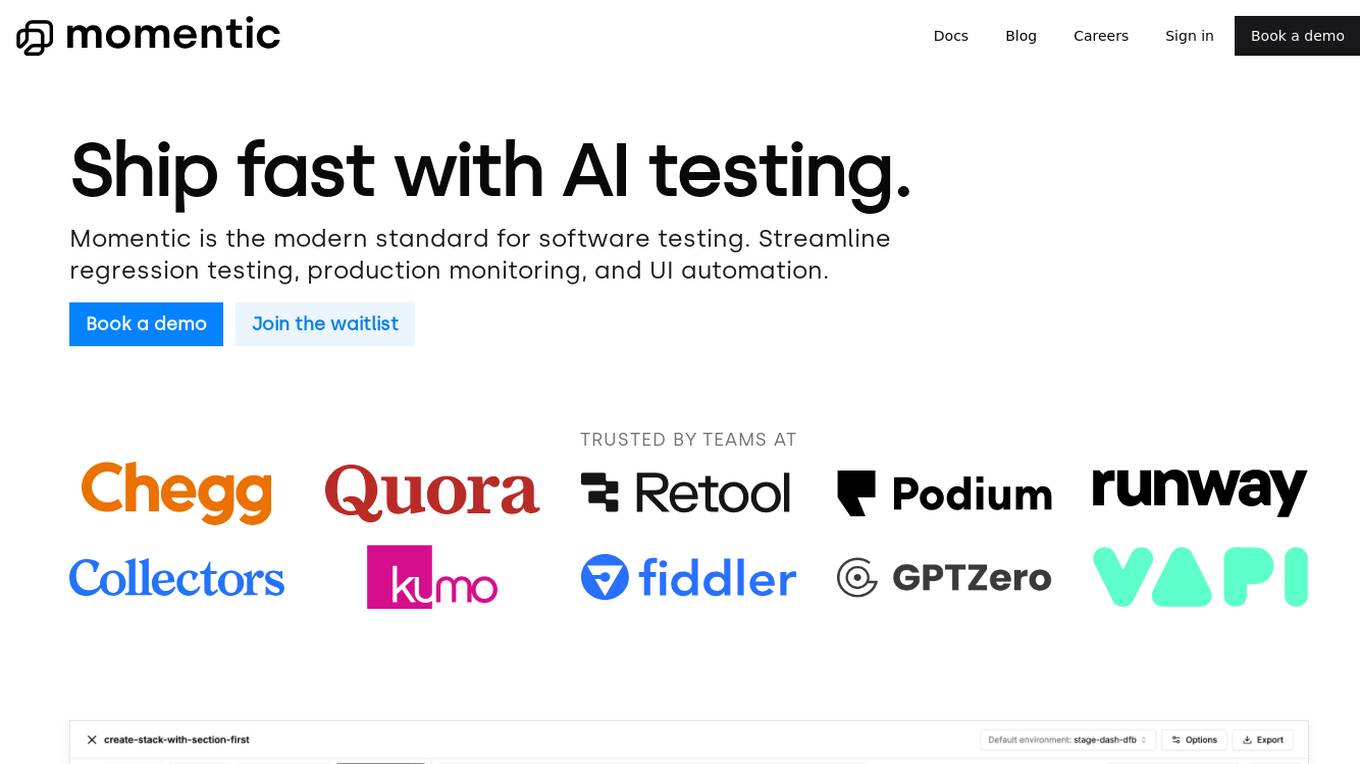
Momentic
Momentic is an AI testing tool that offers automated AI testing for software applications. It streamlines regression testing, production monitoring, and UI automation, making test automation easy with its AI capabilities. Momentic is designed to be simple to set up, easy to maintain, and accelerates team productivity by creating and deploying tests faster with its intuitive low-code editor. The tool adapts to applications, saves time with automated test maintenance, and allows testing anywhere, anytime using cloud, local, or CI/CD pipelines.
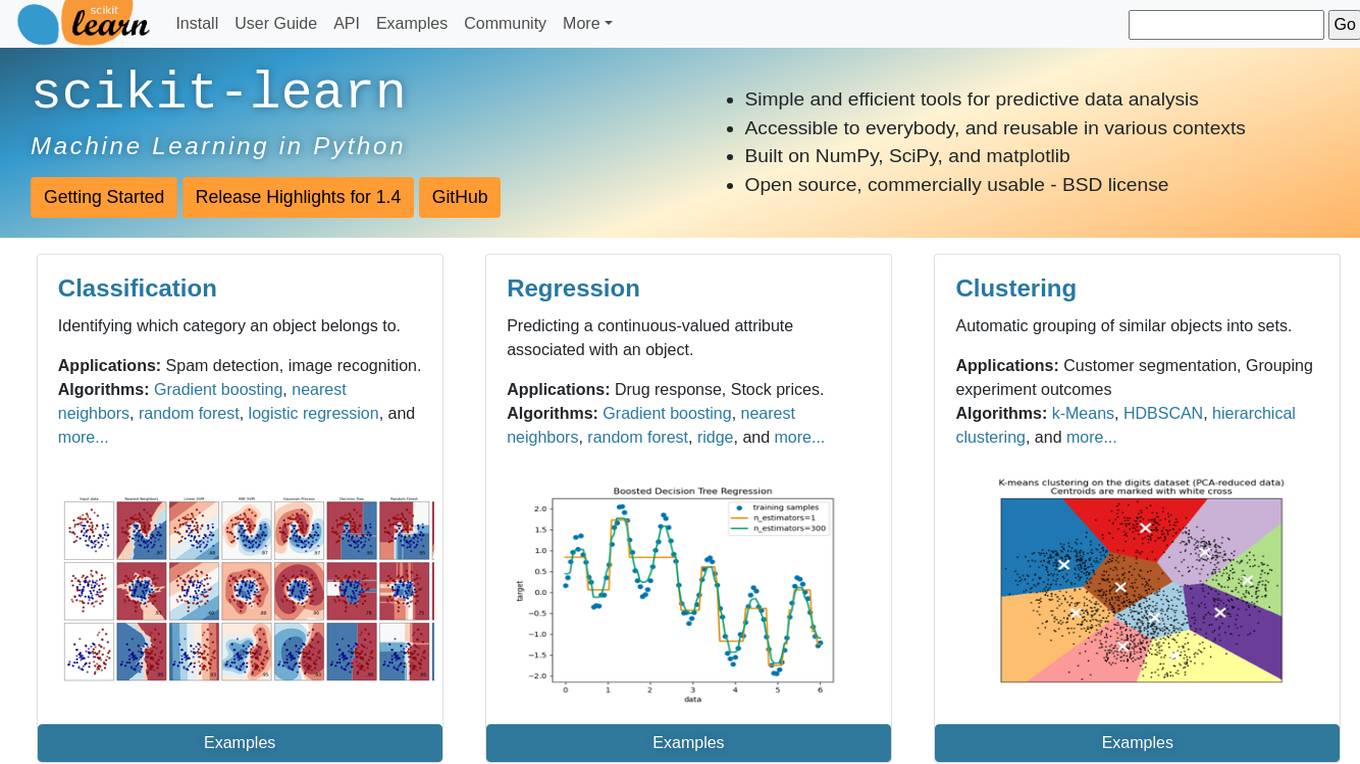
scikit-learn
Scikit-learn is a free software machine learning library for the Python programming language. It features various classification, regression and clustering algorithms including support vector machines, random forests, gradient boosting, k-means and DBSCAN, and is designed to interoperate with the Python numerical and scientific libraries NumPy and SciPy.
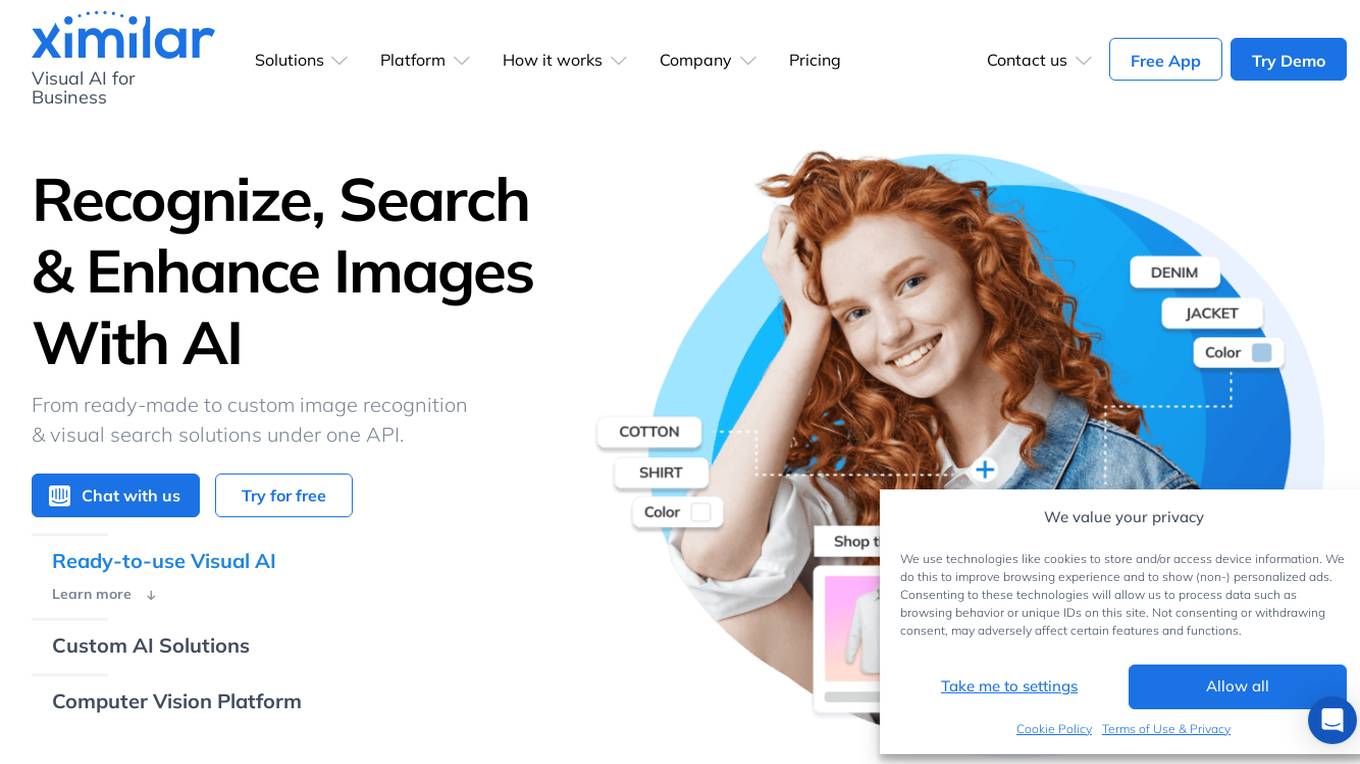
Ximilar Visual AI for Business
Ximilar Visual AI for Business is an AI tool that offers a comprehensive platform for image recognition and visual search solutions. It provides features such as image classification, regression, object detection, AI model combination, image annotation, and more. Users can easily build custom machine learning models without coding, access ready-to-use visual AI demos, and benefit from features like image upscaling, background removal, and color extraction. The platform caters to various industries including fashion, home decor, stock photos, collectibles, med & biotech, manufacturing, and real estate.
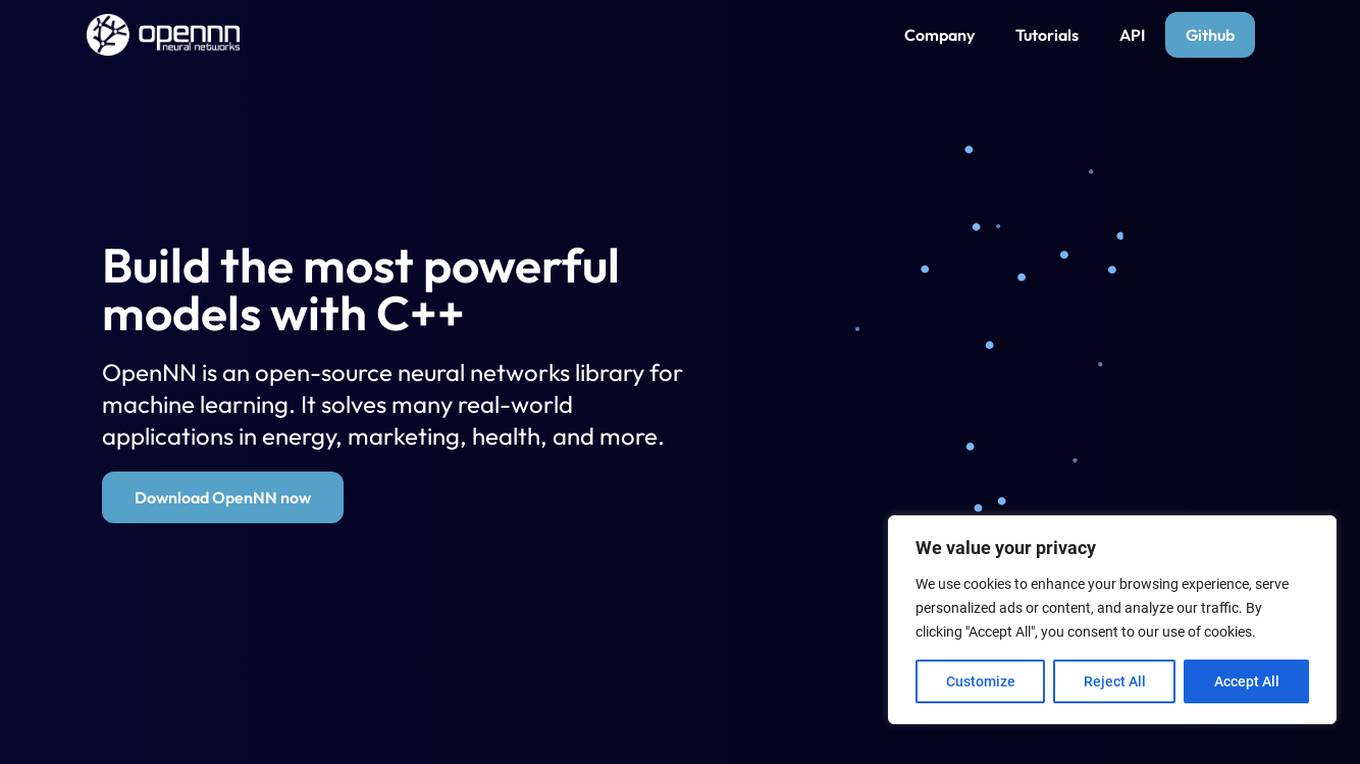
OpenNN
OpenNN is an open-source neural networks library for machine learning that solves real-world applications in energy, marketing, health, and more. It offers sophisticated algorithms for regression, classification, forecasting, and association tasks. OpenNN provides higher capacity for managing bigger data sets and faster training compared to TensorFlow and PyTorch. It is being developed by Artelnics, a consulting company specialized in artificial intelligence and big data. Neural Designer, a software tool developed from OpenNN, helps build neural network models without programming.
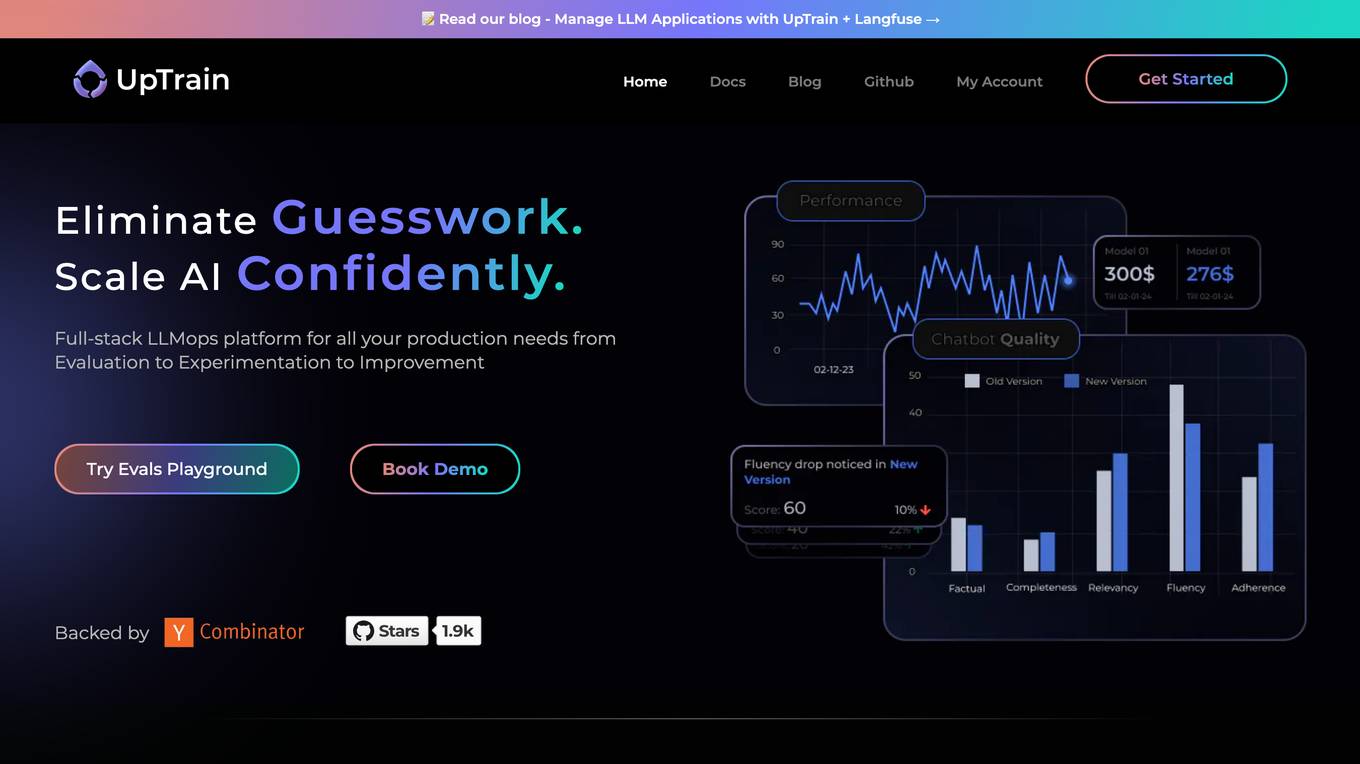
UpTrain
UpTrain is a full-stack LLMOps platform designed to help users confidently scale AI by providing a comprehensive solution for all production needs, from evaluation to experimentation to improvement. It offers diverse evaluations, automated regression testing, enriched datasets, and innovative techniques to generate high-quality scores. UpTrain is built for developers, compliant to data governance needs, cost-efficient, remarkably reliable, and open-source. It provides precision metrics, task understanding, safeguard systems, and covers a wide range of language features and quality aspects. The platform is suitable for developers, product managers, and business leaders looking to enhance their LLM applications.
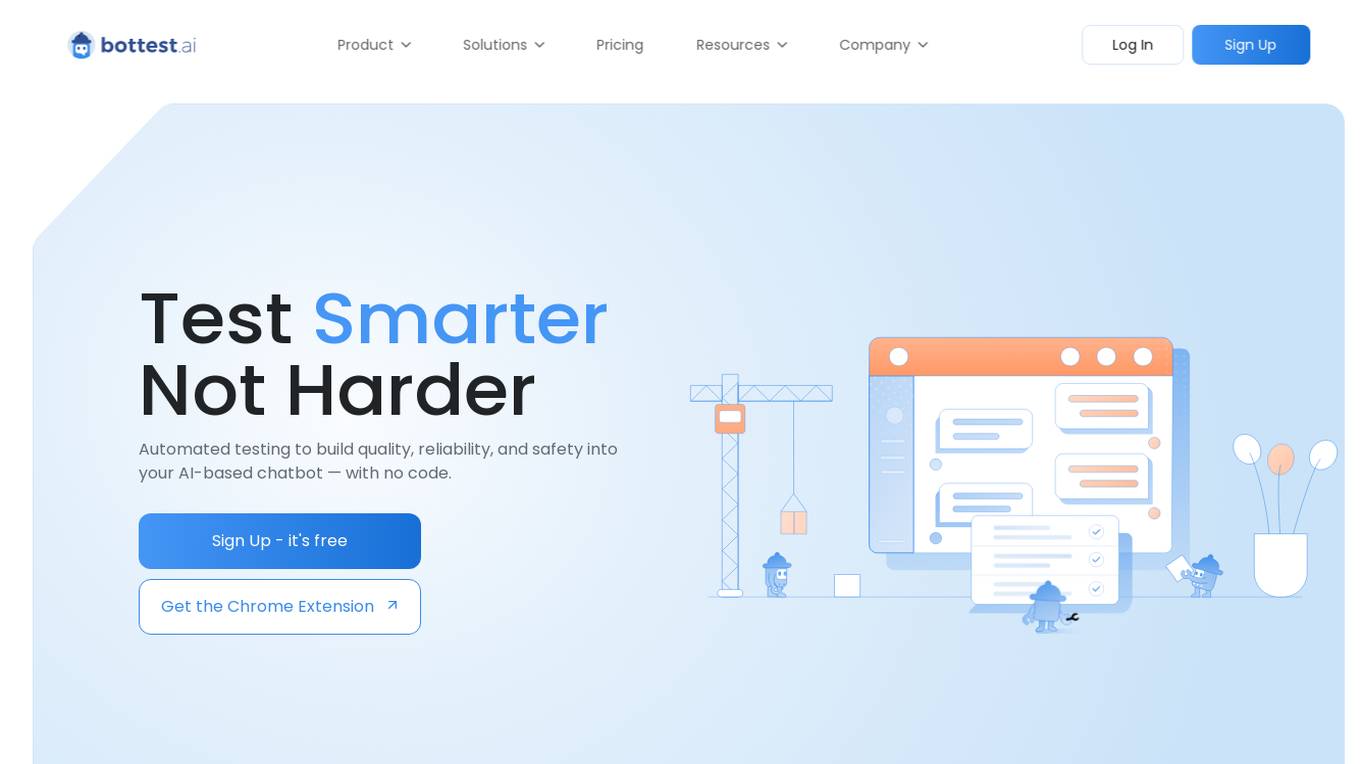
bottest.ai
bottest.ai is an AI-powered chatbot testing tool that focuses on ensuring quality, reliability, and safety in AI-based chatbots. The tool offers automated testing capabilities without the need for coding, making it easy for users to test their chatbots efficiently. With features like regression testing, performance testing, multi-language testing, and AI-powered coverage, bottest.ai provides a comprehensive solution for testing chatbots. Users can record tests, evaluate responses, and improve their chatbots based on analytics provided by the tool. The tool also supports enterprise readiness by allowing scalability, permissions management, and integration with existing workflows.
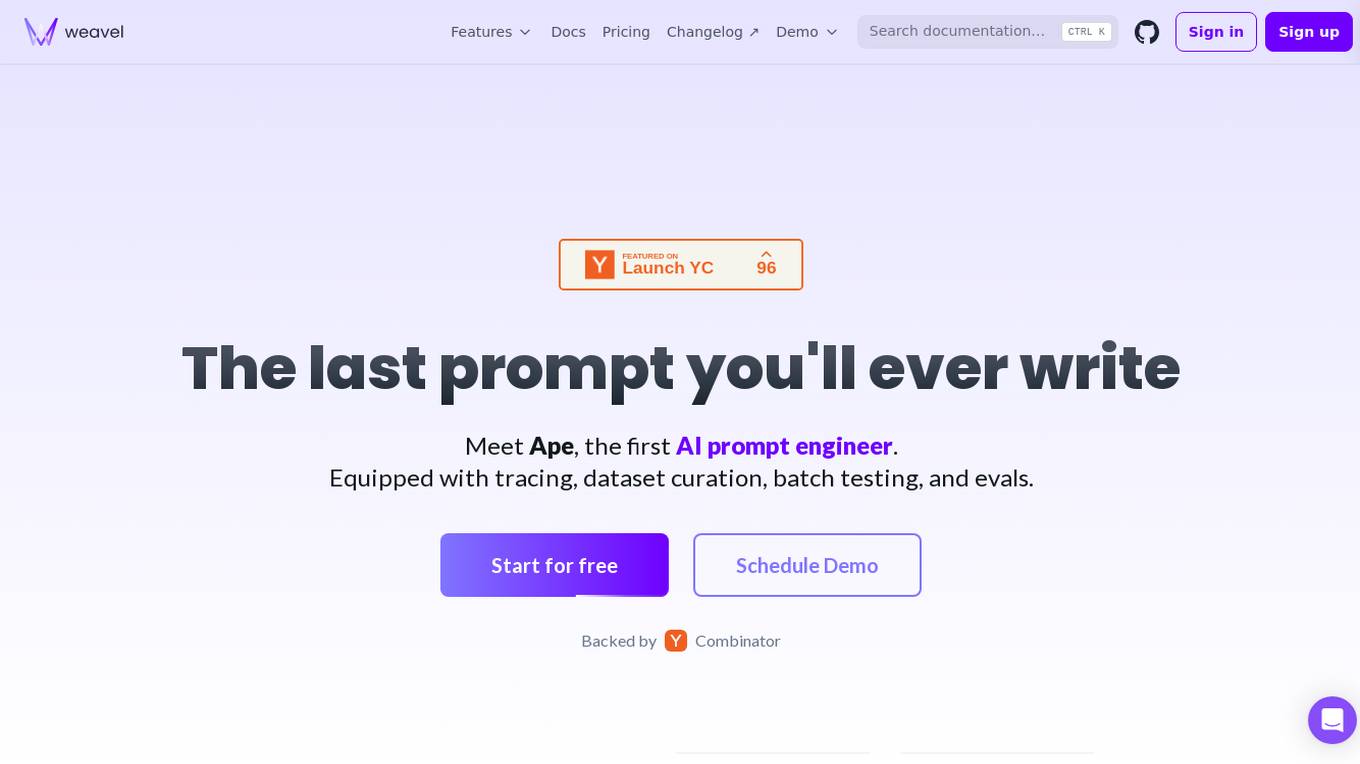
Weavel
Weavel is an AI tool designed to revolutionize prompt engineering for large language models (LLMs). It offers features such as tracing, dataset curation, batch testing, and evaluations to enhance the performance of LLM applications. Weavel enables users to continuously optimize prompts using real-world data, prevent performance regression with CI/CD integration, and engage in human-in-the-loop interactions for scoring and feedback. Ape, the AI prompt engineer, outperforms competitors on benchmark tests and ensures seamless integration and continuous improvement specific to each user's use case. With Weavel, users can effortlessly evaluate LLM applications without the need for pre-existing datasets, streamlining the assessment process and enhancing overall performance.

BugRaptors
BugRaptors is an AI-powered quality engineering services company that offers a wide range of software testing services. They provide manual testing, compatibility testing, functional testing, UAT services, mobile app testing, web testing, game testing, regression testing, usability testing, crowd-source testing, automation testing, and more. BugRaptors leverages AI and automation to deliver world-class QA services, ensuring seamless customer experience and aligning with DevOps automation goals. They have developed proprietary tools like MoboRaptors, BugBot, RaptorVista, RaptorGen, RaptorHub, RaptorAssist, RaptorSelect, and RaptorVision to enhance their services and provide quality engineering solutions.
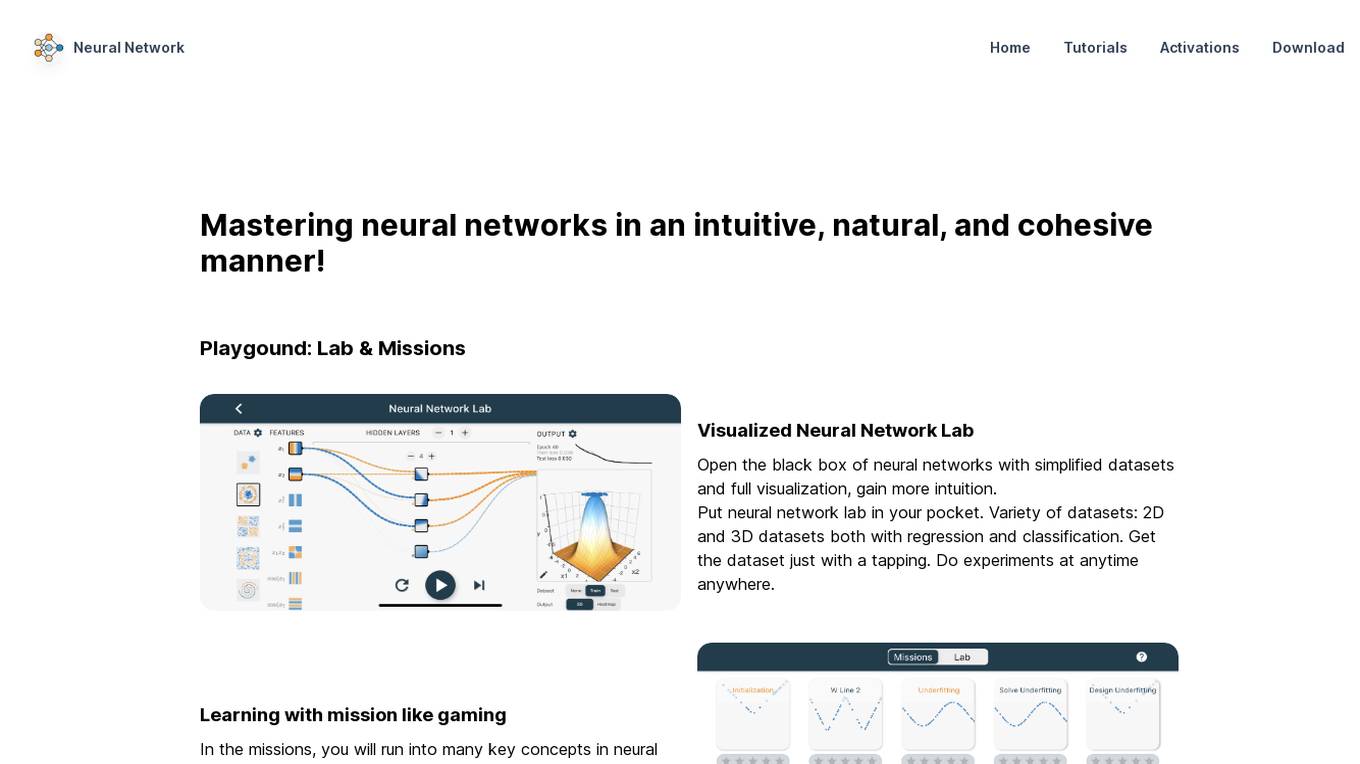
Neural Network Playground
The website offers interactive tutorials on neural networks and deep learning, providing a comprehensive platform for mastering neural networks in an intuitive, natural, and cohesive manner. Users can access a visualized neural network lab with simplified datasets, a variety of 2D and 3D datasets for regression and classification, and interactive missions to deepen understanding. The platform also features intuitive tutorials, well-visualized neural network knowledge with charts and animations, and a visual deep learning model editor for efficient model building. Overall, it aims to enhance learning and understanding of neural networks through interactive and visual tools.
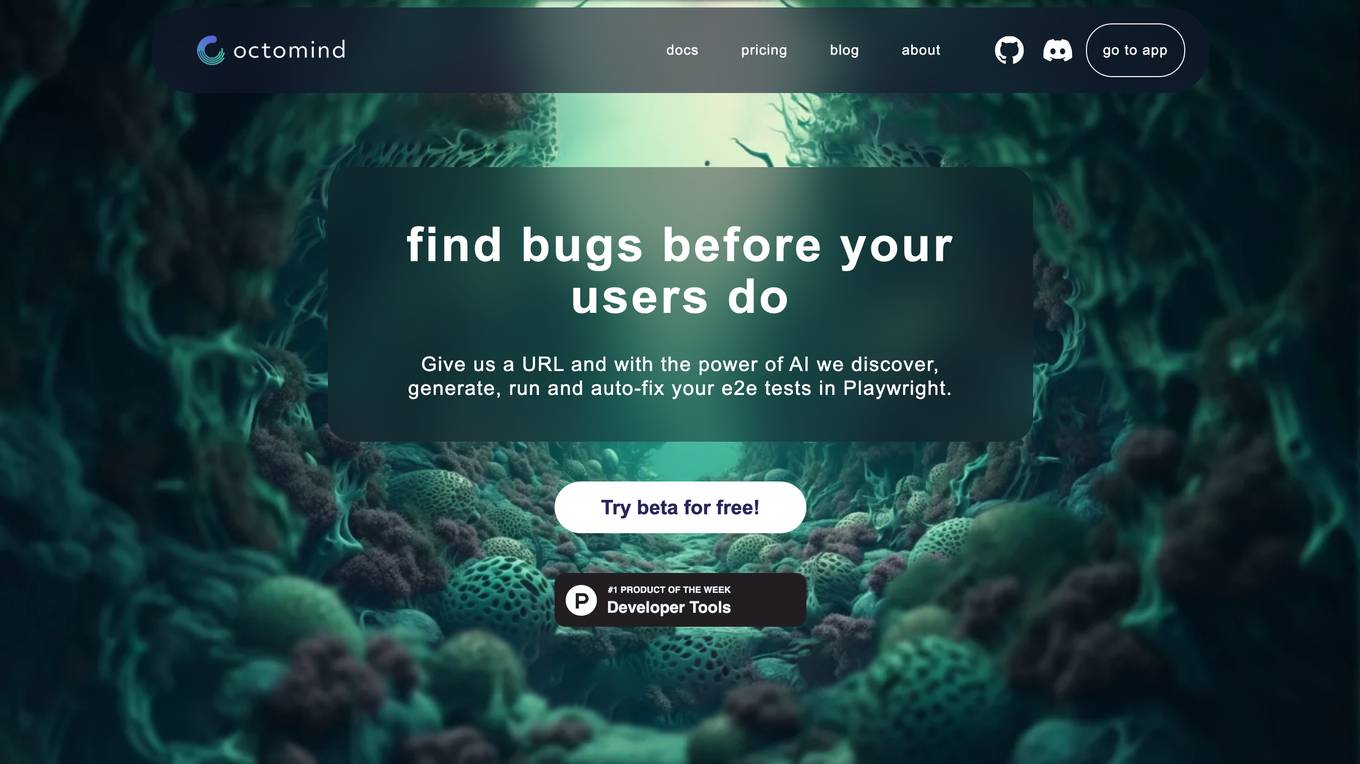
Octomind
Octomind is an AI-powered QA platform that provides automated end-to-end testing for web applications. It offers features such as self-healing tests, visual debugging, and stable test runs. Octomind is designed for early-stage and fast-growing SaaS or AI startups with small engineering teams, aiming to improve product quality and speed by catching regressions before they reach users. The platform is trusted by thousands of engineering teams worldwide and is SOC-2 certified, ensuring privacy and security.

BrainGrid
BrainGrid is an AI Product Planner designed for AI builders to efficiently plan, shape ideas, and scope tasks for their AI coding projects. It helps in creating structured tasks and prompts that coding agents can execute reliably, leading to faster feature delivery, fewer regressions, and a clear path to building AI-native SaaS products. BrainGrid bridges the planning gap for non-technical founders, enabling them to launch production-grade software with ease.
1 - Open Source AI Tools
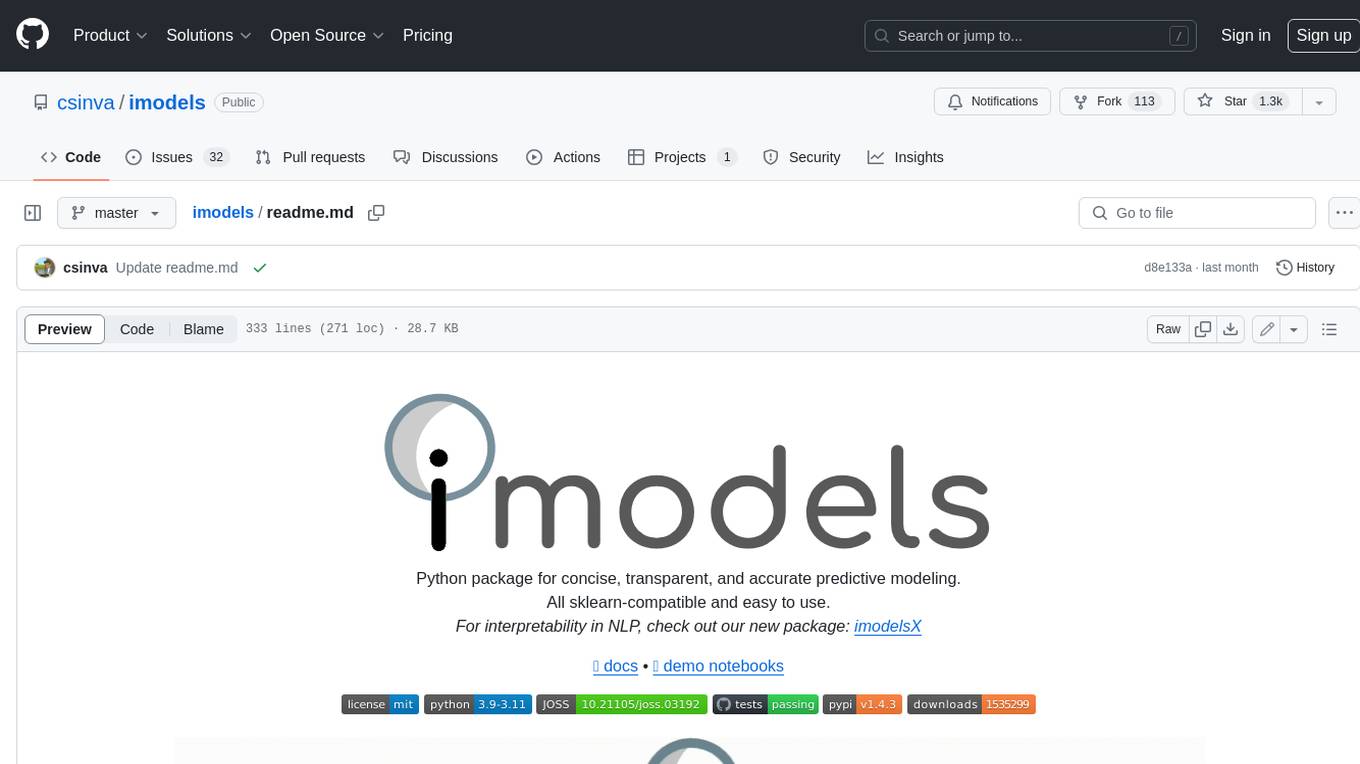
imodels
Python package for concise, transparent, and accurate predictive modeling. All sklearn-compatible and easy to use. _For interpretability in NLP, check out our new package:imodelsX _
2 - OpenAI Gpts
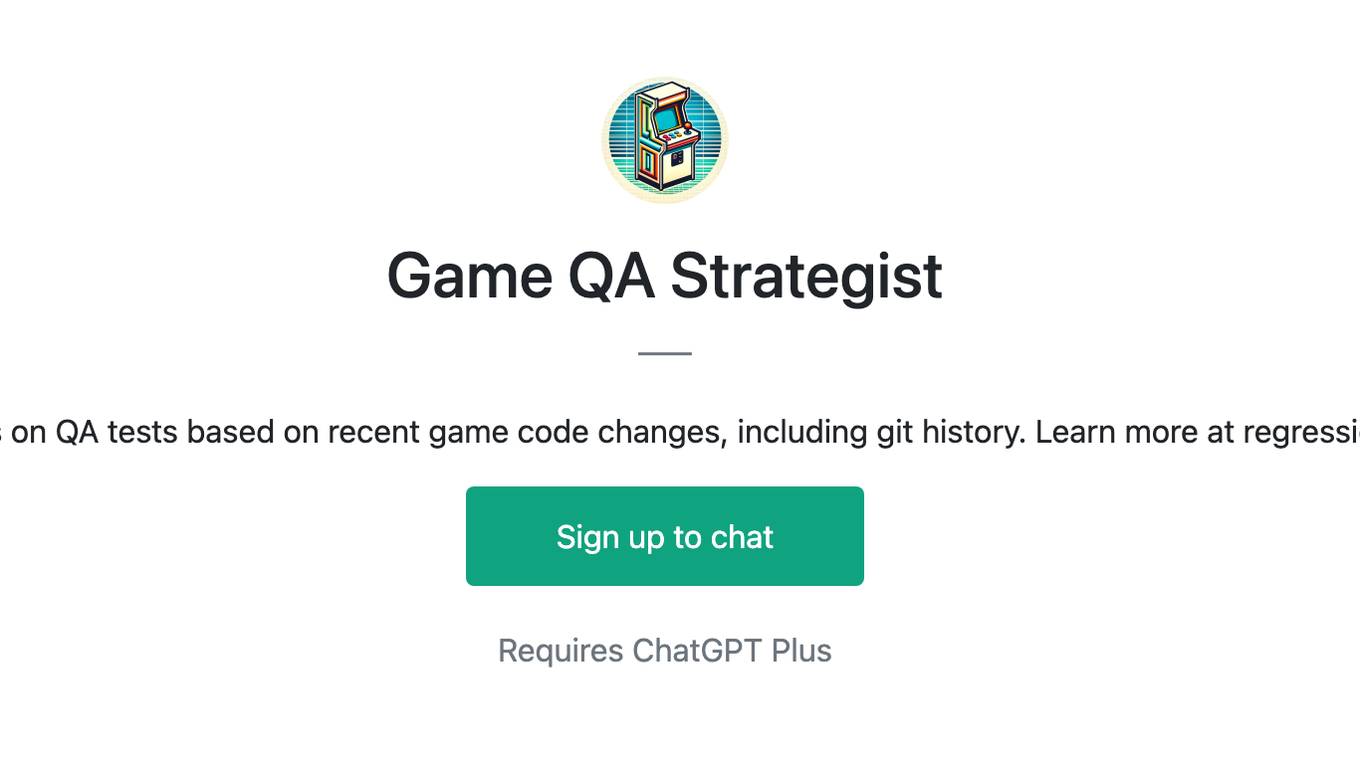
Game QA Strategist
Advises on QA tests based on recent game code changes, including git history. Learn more at regression.gg
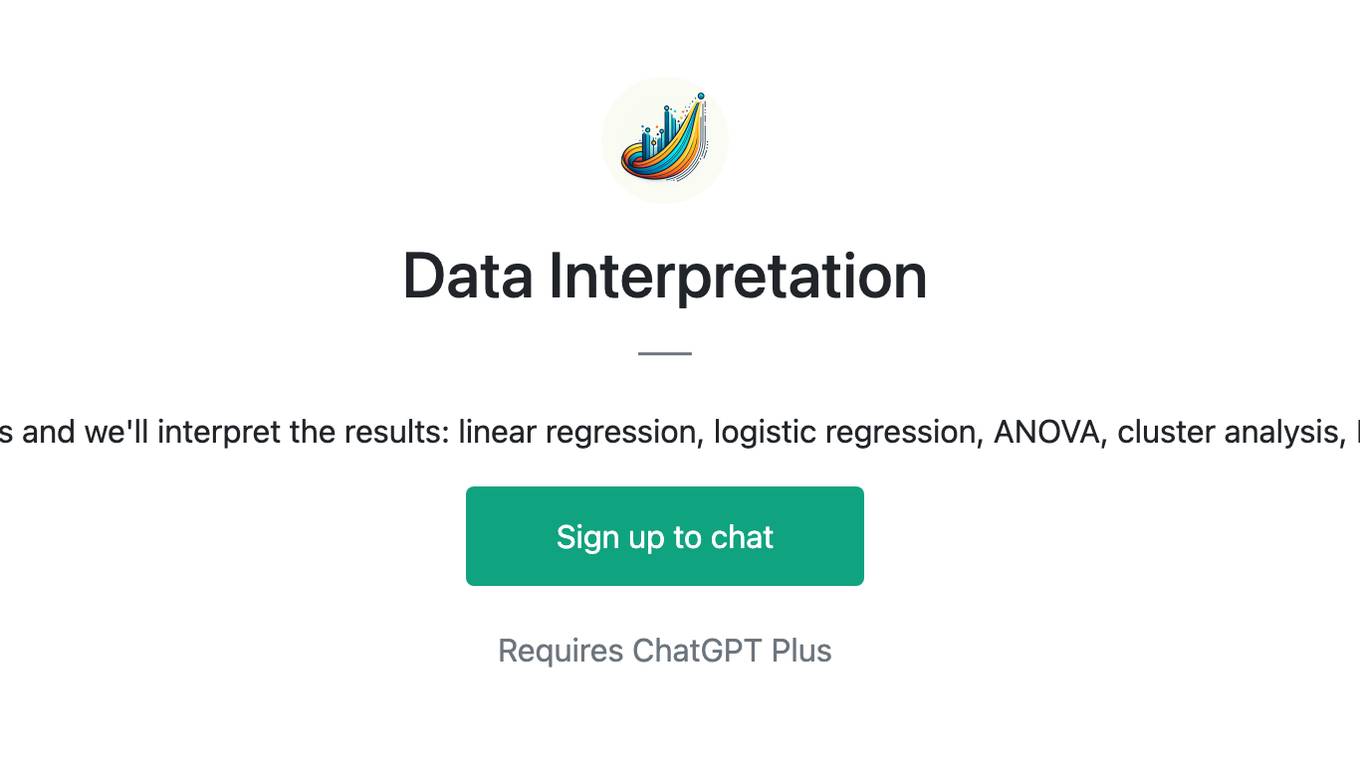
Data Interpretation
Upload an image of a statistical analysis and we'll interpret the results: linear regression, logistic regression, ANOVA, cluster analysis, MDS, factor analysis, and many more